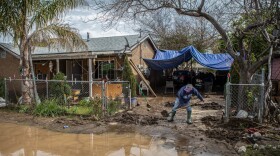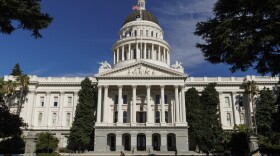At a foreign policy conference at Spain's Ministry of Defense last week, the senior military officer presiding at the meeting opened his remarks by thanking "those who have come from Europe." Younger members of the audience rolled their eyes.
"It's a generation thing," says Jose Ignacio Torreblanca, 41, who attended the meeting as director of the Madrid office of the European Council on Foreign Relations. "Paris and Berlin are only an hour and a half away. You don't even have to change your currency or show your passport. But older people sometimes still talk of Spain as 'here' and Europe as 'over there.' "
That self-conscious attitude dates from Spain's postwar years under the rule of dictator Francisco Franco. The country's development was stalled, even as Europe as a whole marched steadily ahead. It was only after Franco's death in 1975 that Spain began to emerge from its political and economic isolation.
"At last, we could be normal," recalls economist Fernando Fernandez, who was a college student at the time. "We were obsessed with becoming a regular European country."
A Divided Europe
The tenuousness of Spain's European identity, however, has once again been highlighted, this time as a consequence of the country's deepening debt and deficit problems.
For the first time since it joined the European Union and adopted the euro as its currency, Spain finds itself scorned by its northern neighbors. Its relatively unproductive workforce, sluggish economy and alleged lack of fiscal discipline has landed Spain in the hated PIIGS collection of peripheral European states, alongside Portugal, Ireland, Italy and Greece.
"Cracks are appearing within Europe between North and South, and we are on the wrong side," says Torreblanca. "People are looking at each other with prejudices: stubborn Germans versus spendthrift Latins."
Copying The European Model
Paradoxically, Spain's recent marginalization may stem partly from its eagerness to emulate an imagined European ideal.
We wanted to be as rich as the Europeans, and as civilized, as democratic, as tolerant, as liberal. In many ways, we accomplished that. And now we've lost the next goal. What do we want to be when we grow up?
"We thought it would be easy," says Fernandez, now a professor at Madrid's IE Business School and a columnist for the ABC newspaper in Madrid. "Our attitude was, 'Let's see what the Europeans do, and we'll copy it.' "
But for both the government and the Spanish people, the European model was associated with overspending. In the years following Spain's political and economic modernization, the federal and regional governments constructed an elaborate social welfare state. Many Spaniards, meanwhile, associated being "European" with a lifestyle of luxury and leisure.
It came naturally. The Spanish economy was booming, and the introduction of the euro currency in 1999 meant banks were eager to lend.
"Spain passed from poverty to wealth in the manner of the newly rich," says Gerardo Viada, a prominent Madrid lawyer. "Everyone was buying things or building things or investing in things, without a solid enough base underneath."
The Way Ahead
Now, reality has set in. Spain's combined fiscal and trade deficits are now among the highest in Europe. Foreign investors have begun to shun the country's bonds, and the prospects for further economic growth and modernization are uncertain, given the strict austerity targets the government has set for itself under pressure from other governments, including the United States. As a result, Spain is facing a new identity crisis.
"In a way, the country has lost its purpose," says Fernandez. "We wanted to be Europe, and we wanted to be rich. We wanted to be as rich as the Europeans, and as civilized, as democratic, as tolerant, as liberal. In many ways, we accomplished that. And now we've lost the next goal. What do we want to be when we grow up?"
The immediate way ahead for Spain may be dictated by the demands of the bond market and the European leaders who put together the $1 trillion "stabilization fund" with Spain's fiscal predicament prominently in mind. There is likely to be a period when the country's connection with "Europe" again seems weak, at least to those who remember when it really was.
For many younger Spaniards, however, their European identity is by now so firmly implanted that anything else is almost unimaginable, no matter what other Europeans may say about their country and regardless of the judgment of the bond markets.
"I don't think we should be obsessed about these things," says Torreblanca. "We should be confident and do what is in our interests, for our own reasons." That is not to say, he adds, that Spain should ignore the bond markets, focused as they are on Spain's debt and deficit problems.
"We should get our homework done, as we've done in the past," he says. "And the markets are always reminders of the things you have to do."
After all, learning discipline is part of growing up.
Copyright 2022 NPR. To see more, visit https://www.npr.org. 9(MDAzMjM2NDYzMDEyMzc1Njk5NjAxNzY3OQ001))







